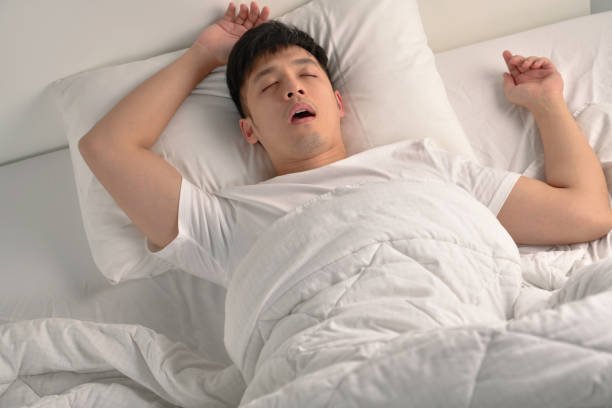Sleep apnea isn’t merely an inconvenience—it’s a potentially serious sleep disorder in which breathing regularly starts and stops. It can have serious implications, impacting both the quality of your sleep and your overall health. Understanding the severity of this condition is of paramount importance.
The disruptive condition of sleep apnea can cause severe repercussions like rapid fatigue, and impaired performance, and even instigate severe conditions like heart disease. If left untreated, it can potentially shorten your life span. This is why it’s crucial to be aware of the symptoms and available treatment options.
Scientists and medical professionals have studied sleep apnea extensively. They found that its effects could be lessened or eliminated through different treatment methods, including lifestyle changes and medical interventions. In the remainder of this article, we aim to shed more light on these treatment options.
Understanding the severity of Sleep Apnea
Contents

Can sleep apnea kill you? A question that spins in the mind of anyone first diagnosed. The answer isn’t as straightforward. While sleep apnea isn’t inherently lethal, its potential health implications can be severe. Long-term untreated sleep apnea patients risk developing heart diseases, stroke, and high blood pressure, all of which are life-threatening.
Sleep apnea creates an unhealthy cycle of disturbed sleep, daytime sleepiness, severe fatigue, and reduced daytime performance. It also leads to an increase in stress hormones, affecting your mental health. Its impact on heart health involves increased risk for irregular heartbeats, heart attacks, and worsening of heart failure over time.
While the repercussions make it sound dire, it’s vital to note that sleep apnea, once identified, can be treated and managed effectively. With appropriate treatment and lifestyle changes, patients can lead healthy, fulfilling lives. The key is early detection and persistent management.
The Potential of Sleep Apnea Surgery

For those who experience severe sleep apnea symptoms and haven’t found relief from other interventions, sleep apnea surgery might be a practical solution. One type of this surgery focuses on removing excessive tissue from your throat or mouth area, thereby enhancing the flow of air when you sleep.
Typically, medical professionals suggest surgical intervention as a last resort, after traditional approaches such as weight reduction, usage of dental appliances, or Continuous Positive Airway Pressure (CPAP) therapy have proven ineffective. Like any surgical procedure, it doesn’t come without risks or the potential for complications. Consequently, in-depth discussions with trained medical authorities become crucial before making a decision.
The concept of undergoing surgery may seem daunting to some, but it’s important to remember the objective at hand, reviving your health and vitality. The aim here is to enhance the quality of your sleep, breaking the cycle of severe fatigue and diminished productivity in daytime activities. Each patient is unique and deserves a tailored strategy for their treatment.
Alternatives to Surgery

There are numerous non-surgical methods and lifestyle changes that can dramatically improve, and in some cases, eliminate sleep apnea symptoms. These are less invasive and often the first line of treatment upon diagnosis:
- Weight loss: Most individuals with sleep apnea are overweight. Losing weight can reduce the severity of symptoms.
- Quit smoking: This habit worsens sleep apnea as it contributes to inflammation and fluid retention in the airway.
- Avoiding alcohol and sleeping pills: These substances relax the muscles in the back of your throat, obstructing airflow.
- Regular exercise: Physical activity can significantly reduce symptoms, even without weight loss.
The choice of treatment always depends on the severity of the condition, patient preference, and the presence of other medical conditions.
Choosing the Right Pillow

A simple yet often overlooked aid in managing sleep apnea is the right pillow. Sleep apnea pillows are designed to keep your throat open, either by aligning your neck properly or by encouraging side sleeping. They are readily available and can be an excellent addition to your medical treatment plan.
Two primary factors to consider while choosing a sleep apnea pillow include Your preferred sleeping position – different pillows cater to back sleepers, side sleepers, and stomach sleepers differently; and your comfort – though the pillow might be technically excellent if it doesn’t feel good to sleep on, it unlikely to help.
Remember, these pillows don’t replace medical treatments but can be used as part of your overall treatment plan. Consult your doctor or a sleep specialist to help choose the right sleep apnea pillow based on your specific condition.
Tips to Get a Good Night’s Sleep with Sleep-Disordered Breathing

Sleep apnea can make a good night’s sleep seem like an unattainable luxury, but there are certain practices you can adopt to improve your sleep quality:
- Consistent sleep schedule: Go to bed and wake up at the same time every day.
- Create an inviting sleep environment: Make your bedroom dark, quiet, and cool.
- Consider trying a specially designed pillow for sleep apnea.
Following these sleep hygiene strategies and seeking the right treatment, those living with sleep apnea can reclaim their good night’s sleep and improve overall health.
Sleep apnea, a frequently unnoticed but significant sleep disorder, takes a toll on the lives of millions and hampers overall well-being. But a sleep apnea diagnosis doesn’t have to translate into a lifetime of weary days and restless nights.
There’s a range of treatment pathways open to you, whether it’s undertaking lifestyle changes, utilizing specially crafted pillows, or even surgical interventions. Enduring nights of disrupted sleep should not be the norm. Reach out to your medical advisor or a sleep specialist to assist you in identifying symptoms, advising on suitable diagnostics, and formulating the most effective treatment plan tailored to your unique needs. Everyone is entitled to savour the rewards of restful, good-quality sleep!

